Related Research Articles
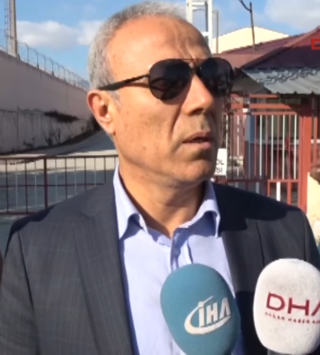
Mehmet Ali Ağca is a Turkish hitman and former member of the Grey Wolves. He murdered the leftist journalist Abdi İpekçi on 1 February 1979 and was imprisoned. He escaped from prison and travelled illegally to Vatican City on 13 May 1981 to assassinate Pope John Paul II. However, after the failed assassination attempt, he was captured and imprisoned by the Italian police.

Roberto Calvi was an Italian banker, dubbed "God's Banker" by the press because of his close business dealings with the Holy See. He was a native of Milan and was chairman of Banco Ambrosiano, which collapsed in one of Italy's biggest political scandals.
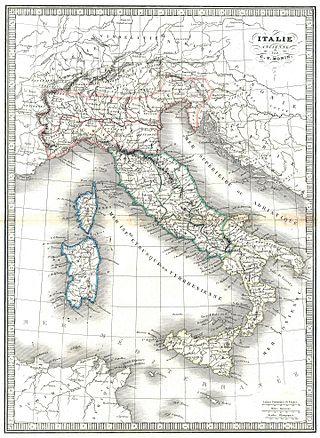
Propaganda Due was a Masonic lodge, founded in 1877, within the tradition of Continental Freemasonry and under the authority of Grand Orient of Italy. Its Masonic charter was withdrawn in 1976, and it was transformed by Worshipful Master Licio Gelli into an international, illegal, clandestine, anti-communist, anti-Soviet, anti-Marxist, and radical right criminal organization and secret society operating in contravention of Article 18 of the Constitution of Italy that banned all such secret associations. Licio Gelli continued to operate the unaffiliated lodge from 1976 to 1984. P2 was implicated in numerous Italian crimes and mysteries, including the collapse of the Holy See-affiliated Banco Ambrosiano, the contract killings of journalist Carmine Pecorelli and mobbed-up bank president Roberto Calvi, and political corruption cases within the nationwide Tangentopoli bribery scandal. P2 came to light through the investigations into the collapse of Michele Sindona's financial empire.
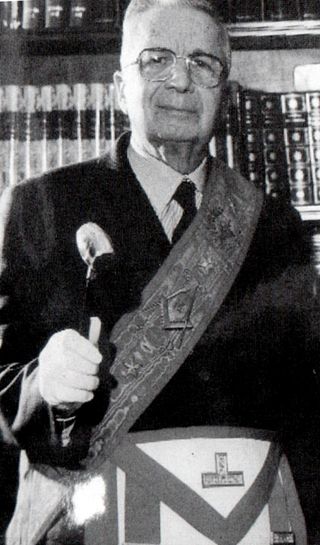
Licio Gelli was an Italian Freemason and businessman. A Fascist volunteer in his youth, he is chiefly known for his role in the Banco Ambrosiano scandal. He was revealed in 1981 as being the Venerable Master of the clandestine masonic lodge Propaganda Due (P2).
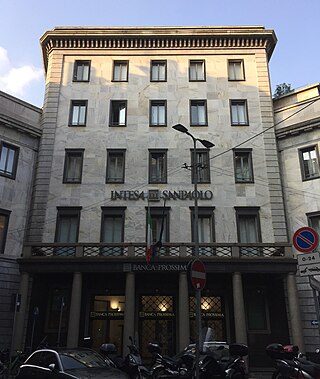
Banco Ambrosiano was an Italian bank that was established in 1896 and collapsed in 1982. The Vatican-based Institute for the Works of Religion, commonly known as the Vatican Bank, was Banco Ambrosiano's main shareholder. The Vatican Bank was accused of funnelling covert United States funds to the Polish trade union Solidarity and to the Nicaraguan Contras through Banco Ambrosiano.
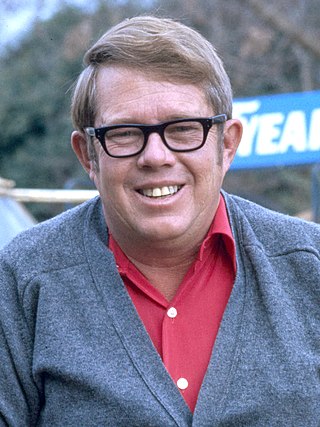
William Alton Carter was an American farmer, businessman, brewer, and politician. The younger brother of U.S. President Jimmy Carter, he promoted Billy Beer and Peanut Lolita; and he was a candidate for mayor of Plains, Georgia.
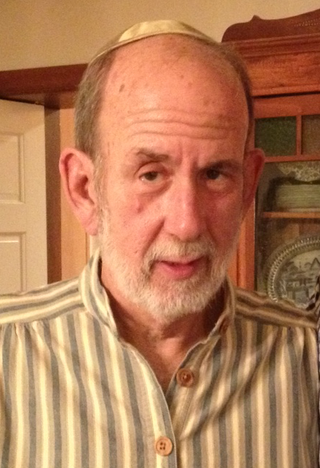
Michael Arthur Ledeen is an American historian and neoconservative foreign policy analyst. He is a former consultant to the United States National Security Council, the United States Department of State, and the United States Department of Defense. He held the Freedom Scholar chair at the American Enterprise Institute where he was a scholar for 20 years, and now holds the similarly named chair at the Foundation for Defense of Democracies. He was very close to Italian politician Antonio Martino. Ledeen was also noted to have done work for Italian intelligence agency SISMI, having received over $100,000 in payment to offshore bank accounts for services including but not limited to training Italian intelligence operatives. Ledeen denies these allegations but admits he did do work for SISMI and was paid for it.

Paul Casimir Marcinkus was an American Catholic prelate who served as president of the Institute for the Works of Religion, commonly known as the Vatican Bank, from 1971 to 1989. He also served as president of the Governorate for Vatican City State from 1989 to 1990, following eight years as vice-president. He was the titular Archbishop of Horta.

The Bologna massacre was a terrorist bombing of the Bologna Centrale railway station in Bologna, Italy, on the morning of 2 August 1980, which killed 85 people and wounded over 200. Several members of the neo-fascist terrorist organization Nuclei Armati Rivoluzionari were sentenced for the bombing, although the group denied involvement.
Rocco Martino is an Italian secret agent. He was born in Tropea, province of Catanzaro.

Giuseppe "Pippo" Calò is an Italian mobster and member of the Sicilian Mafia in Porta Nuova. He was referred to as the cassiere di Cosa Nostra because he was heavily involved in the financial side of organized crime, primarily money laundering. He was arrested in 1985 and sentenced to 23 years' imprisonment as part of the 1986/87 Maxi Trial. He was sentenced to life imprisonment in 1989 for organising the 1984 Train 904 bombing and was given several further life sentences between 1995 and 2002. He was also charged with ordering the murder of Roberto Calvi – nicknamed il banchiere di Dio – of the Banco Ambrosiano in 1982, but was acquitted in 2007 due to "insufficient evidence" in a surprise verdict.
The Banda della Magliana was a far-right Italian criminal organization based in Rome. It was founded in 1975. Given by the media, the name refers to the original neighbourhood, the Magliana, of some of its members.
Nicolò Pollari is a general of the Italian Guardia di Finanza, who was the former head of Italy's national military intelligence agency, or SISMI, from 1 October 2001 until his resignation on 20 November 2006.

The Abu Omar Case was the abduction and transfer to Egypt of the Imam of Milan Hassan Mustafa Osama Nasr, also known as Abu Omar. The case was picked by the international media as one of the better-documented cases of extraordinary rendition carried out in a joint operation by the United States' Central Intelligence Agency (CIA) and the Italian Military Intelligence and Security Service (SISMI) in the context of the global war on terrorism declared by the George W. Bush administration.
The Mitrokhin Commission was an Italian parliamentary commission set up in 2002 to investigate alleged KGB ties of some Italian politicians. Set up by the Italian Parliament, then led by Silvio Berlusconi's centre-right coalition, the House of Freedoms, and presided by Paolo Guzzanti, its focus was on alleged KGB ties to opposition figures in Italian politics, basing itself on the Mitrokhin Archive, which was controversial and viewed with scepticism, and various other sources including the consultant Mario Scaramella. The Mitrokhin Commission alleged, among other things, that Romano Prodi, former centre-left Prime Minister of Italy and President of the European Commission from 1999 to 2004, was the "KGB's man in Italy".

On 13 May 1981, in St. Peter's Square in Vatican City, Pope John Paul II was shot and wounded by Mehmet Ali Ağca while he was entering the square. The Pope was struck twice and suffered severe blood loss. Ağca was apprehended immediately and later sentenced to life in prison by an Italian court. The Pope forgave Ağca for the assassination attempt. He was pardoned by Italian president Carlo Azeglio Ciampi at the Pope's request and was deported to Turkey in June 2000. Ağca converted to Roman Catholicism in 2007.
Pietro Musumeci is a former general and deputy director of Italy's military intelligence agency, SISMI.
Giovanni Pandico is a former Italian Camorrista who was a member of the Nuova Camorra Organizzata (NCO), a Camorra organization in Naples. Pandico rose to become one of Camorra boss, Raffaele Cutolo's underwriters within the organization. After twelve years of imprisonment, he decided to collaborate with Italian justice and subsequently became a pentito in 1983. Pandico's revelations brought a massive crackdown on the NCO and led to the arrests of over 856 NCO members and affiliates on June 17, 1983, a day labeled by the Neapolitan press as the black day of the NCO.

Crime in the Vatican City consists largely of purse snatching, pick-pocketing and shoplifting perpetrated by tourists upon other tourists. The tourist foot-traffic in St. Peter's Square is one of the main locations for pickpockets in Vatican City.
Umberto Ortolani was an Italian businessman, banker, farm landowner and media mogul with business interests in Italy and South America. Freemason, a friend of the Cardinal Giacomo Lercaro, since 1963 he was a Papal gentleman and in 1969 he became Ambassador of the Knights Hospitalier Order of Malta in Montevideo.
References
- ↑ "Faccenderie Pazienza Volontario Pubblica Assistenza Lerici". ANSA. 17 April 2007.
- ↑ "Olivetti Chief Convicted in Bank Scandal". The Guardian . 17 April 1993. p. 21.
- 1 2 3 "Tale of Intrigue: How an Italian Ex-Spy Who Also Helped U.S. Landed in Prison Here". The Wall Street Journal . 7 August 1985. p. 1.
- ↑ "Former Italian Spy Loses First Round in Extradition Case". The Wall Street Journal . 12 September 1985. p. 1.
- ↑ "Pazienza Extradited". Financial Times . 20 June 1986. p. 1.
- ↑ Alexander Cockburn (6–13 July 1985). "The Gospel According to Ali Agca". The Nation . Archived from the original on 23 January 2017.
- ↑ "Former Spy Says He Warned the Vatican of Assassination Try --- Name of Pazienza Crops Up at Trial of the Bulgarians in Attempt to Kill Pope". The Wall Street Journal . 8 August 1985. p. 1.
- ↑ "Three deny Agca was coached about 'Bulgarian connection'". United Press International . 12 December 1985.
- ↑ "Rome Inquiry: Was Agca Coached?". The New York Times . 8 October 1985. pp. A3.
- ↑ "Italian Is in New York, Investigating Papal Plot". The New York Times . 11 December 1985. pp. A7.
- ↑ "Italian Judge Said to Drop Probe of Agca Being Coached". The Washington Post . 18 December 1985. pp. A31.
- ↑ "The Bulgarian Connection Still Holds". The Wall Street Journal . 12 February 1986. p. 1. Archived from the original on 23 January 2017.
- 1 2 "Italian Ex-Agent Ordered Extradited from U.S." The New York Times . 12 September 1985. pp. A12.
- ↑ "Suspected Right-Wing Terrorist Questioned in Papal Shooting". Associated Press. 17 April 1987.
- ↑ Fenyvesi, Charles; Pope, Victoria; Strobel, Warren P.; Caryl, Christian (10 October 1999). "Cold warriors' untold tales". U.S. News & World Report . Archived from the original on 24 May 2011. Retrieved 8 September 2021.
- ↑ Gabanelli, Milena (30 January 2009). "Il personaggio: Dopo 13 anni di carcere parla Francesco Pazienza. L'uomo dei misteri d'Italia rivela: lingotti per aiutare Walesa. 'Io, Gelli e la strage di Bologna': Ecco le verità della super-spia" [The character: After 13 years in prison Francesco Pazienza speaks. The man of the mysteries of Italy reveals: ingots to help Walesa. "Me, Gelli and the Bologna massacre": Here are the truths of the super spy]. la Repubblica (in Italian). Archived from the original on 9 March 2021. Retrieved 8 September 2021.
- ↑ Unger, Craig (July 2006). "The War They Wanted, the Lies They Needed". Vanity Fair. Retrieved 5 August 2013.
A 1985 investigation by Jonathan Kwitny in The Wall Street Journal reported that the New Republic article was part of a larger disinformation scam run by Ledeen and SISMI to tilt the election, and that 'Billy Carter wasn't the only one allegedly getting money from a foreign government.' According to Pazienza, Kwitny reported, Michael Ledeen had received at least $120,000 from SISMI in 1980 or 1981 for his work on Billygate and other projects. Ledeen even had a coded identity, Z-3, and had money sent to him in a Bermuda bank account, Pazienza said. Ledeen told the Journal that a consulting firm he owned, I.S.I., worked for SISMI and may have received the money. He said he did not recall whether he had a coded identity. Pazienza was subsequently convicted in absentia on multiple charges, including having used extortion and fraud to obtain embarrassing facts about Billy Carter. Ledeen was never charged with any crime, but he was cited in Pazienza's indictment, which read, 'With the illicit support of the SISMI and in collaboration with the well-known American 'Italianist' Michael Ledeen, Pazienza succeeded in extorting, also using fraudulent means, information ... on the Libyan business of Billy Carter, the brother of the then President of the United States.'
- ↑ "Italy's No. 1 Fugitive Arrested by Customs Agents". Associated Press. 4 March 1985.
- ↑ "Appeals Court Throws Out Bologna Bombing Convictions". Associated Press. 29 July 1990.
- ↑ "Italy remembers 1980 Bologna train station massacre". ANSA. 2 August 2007.